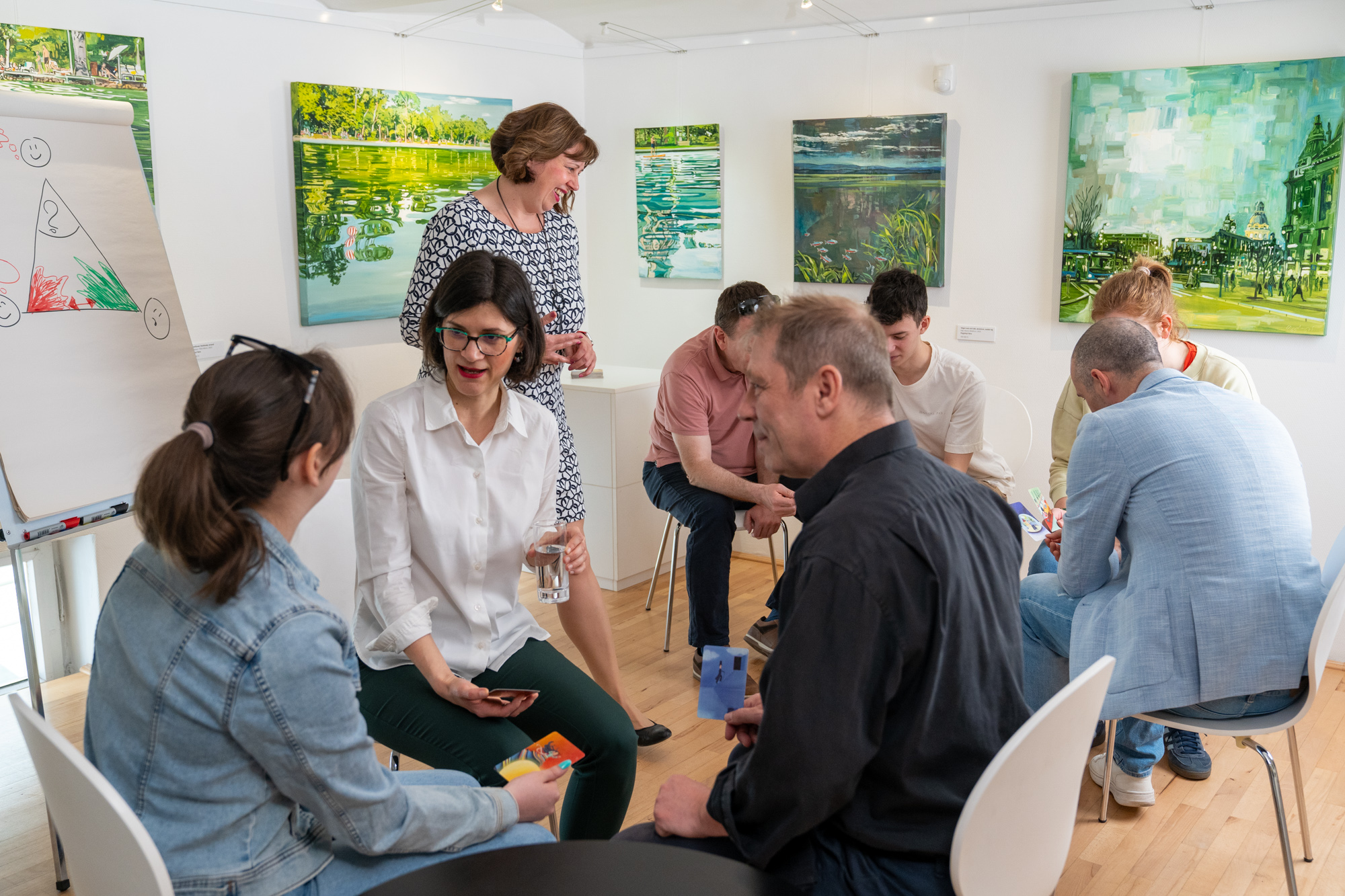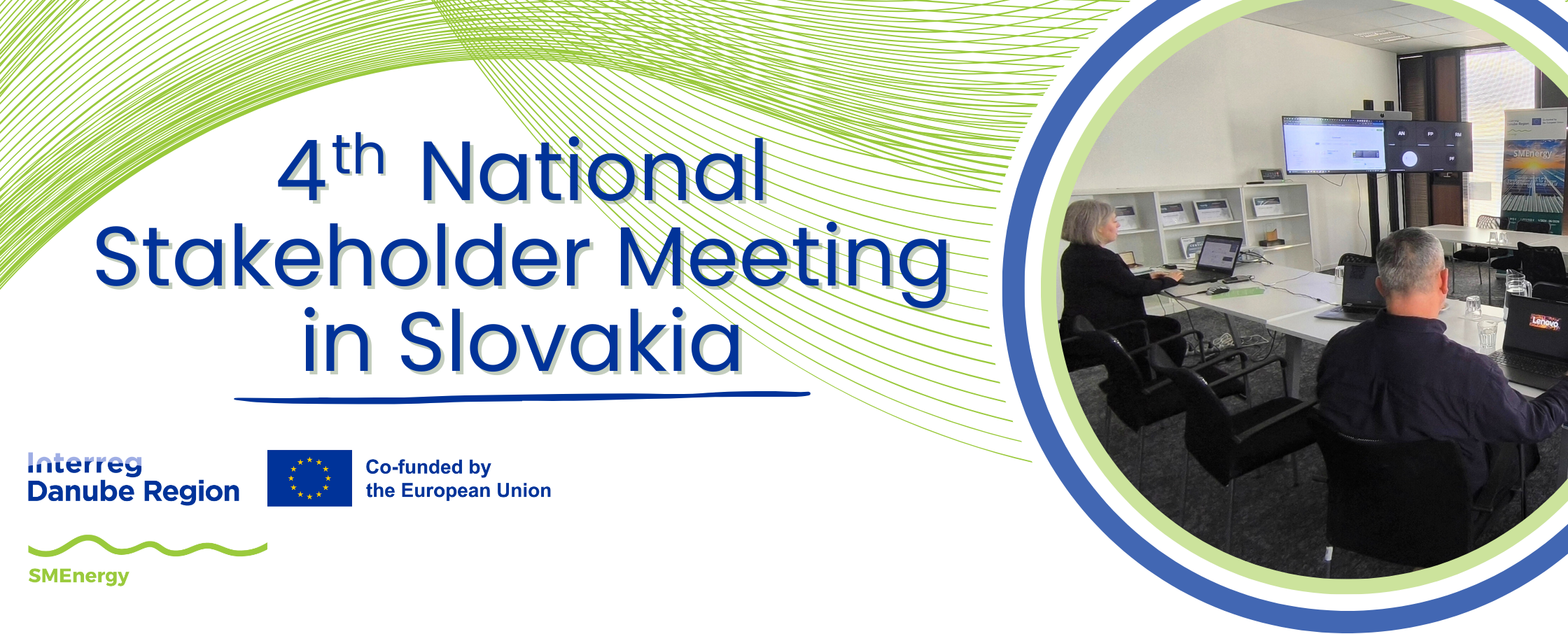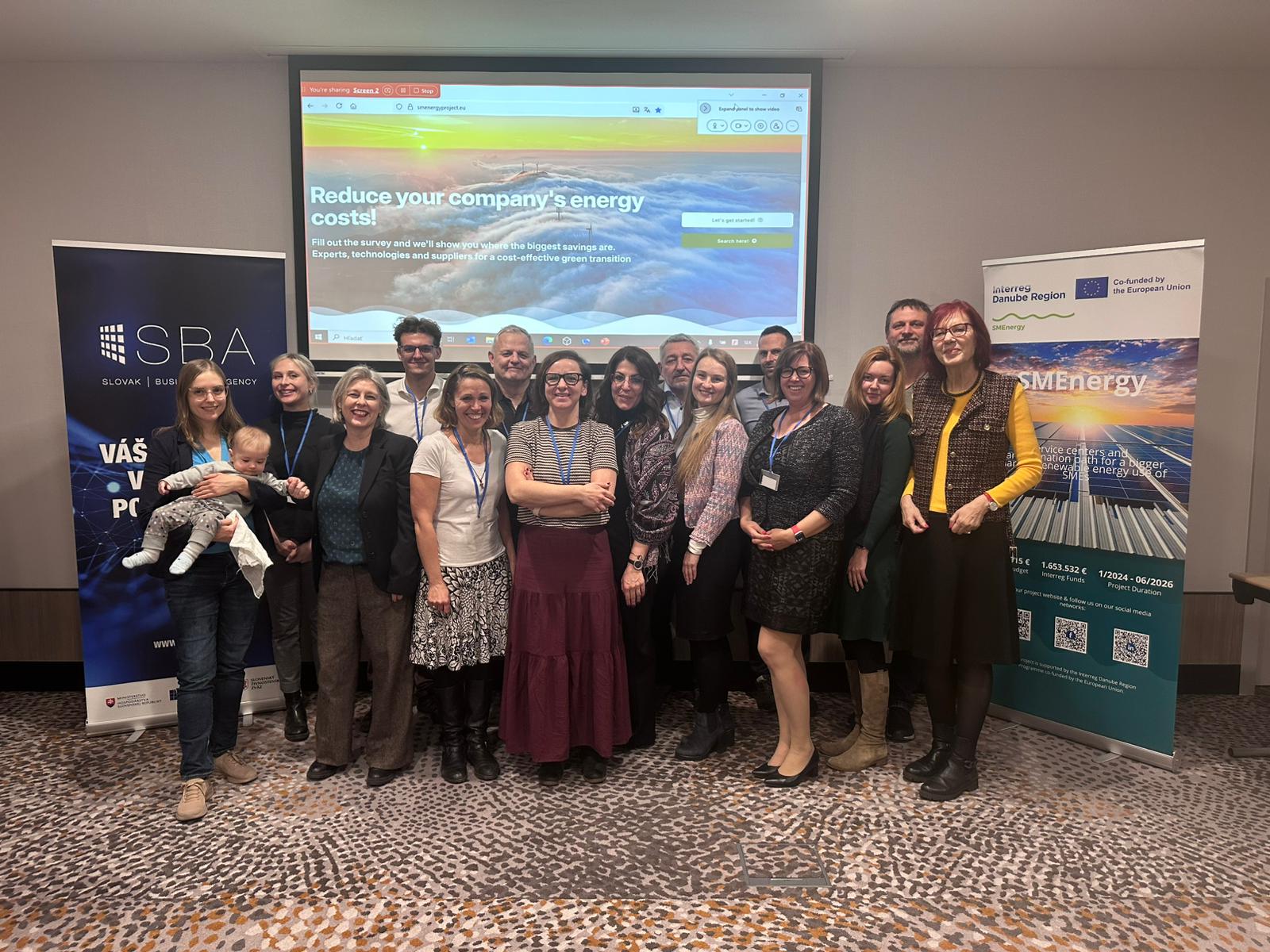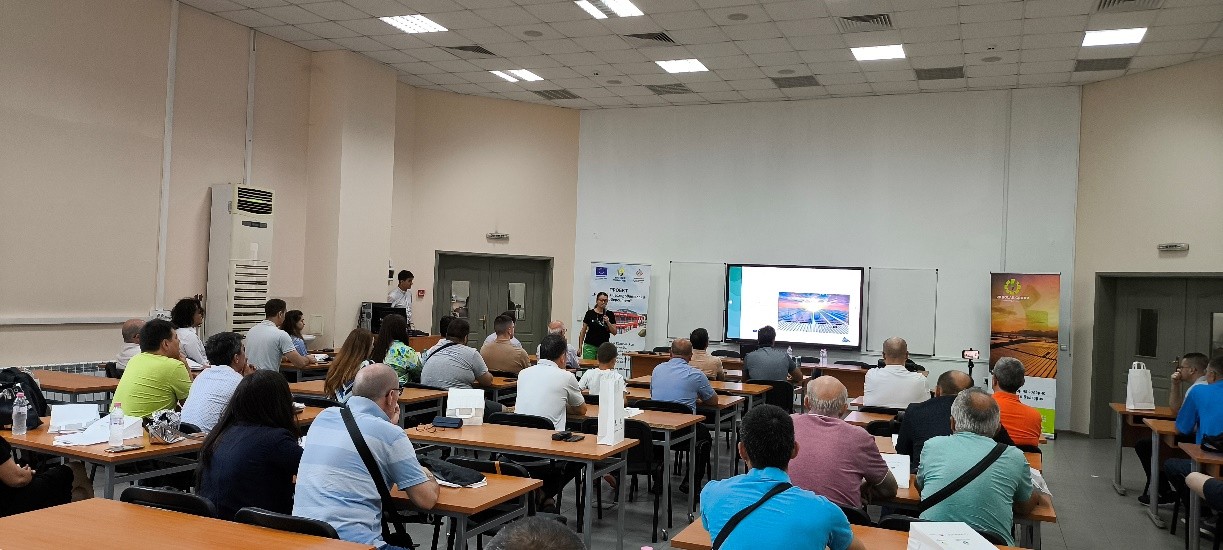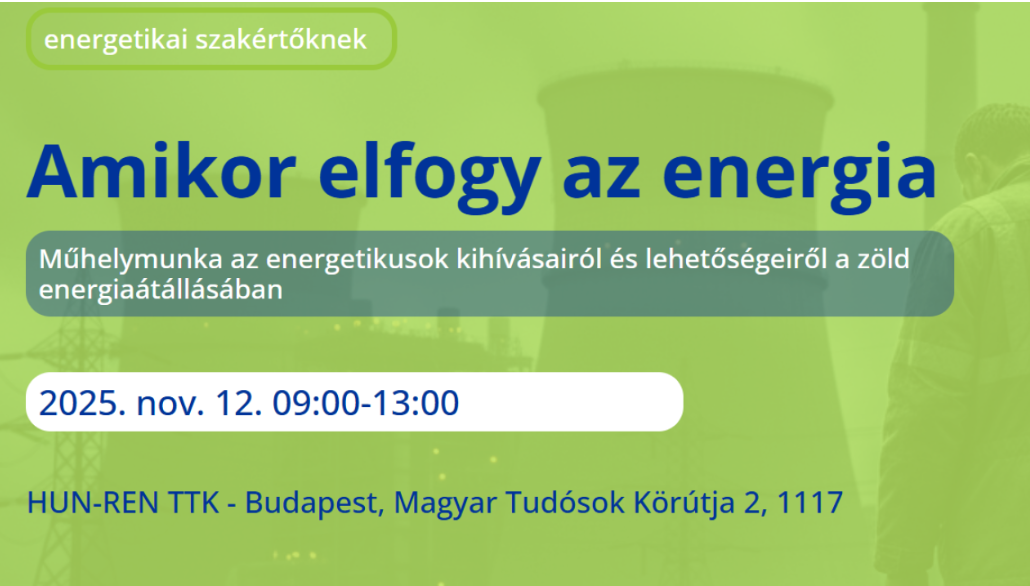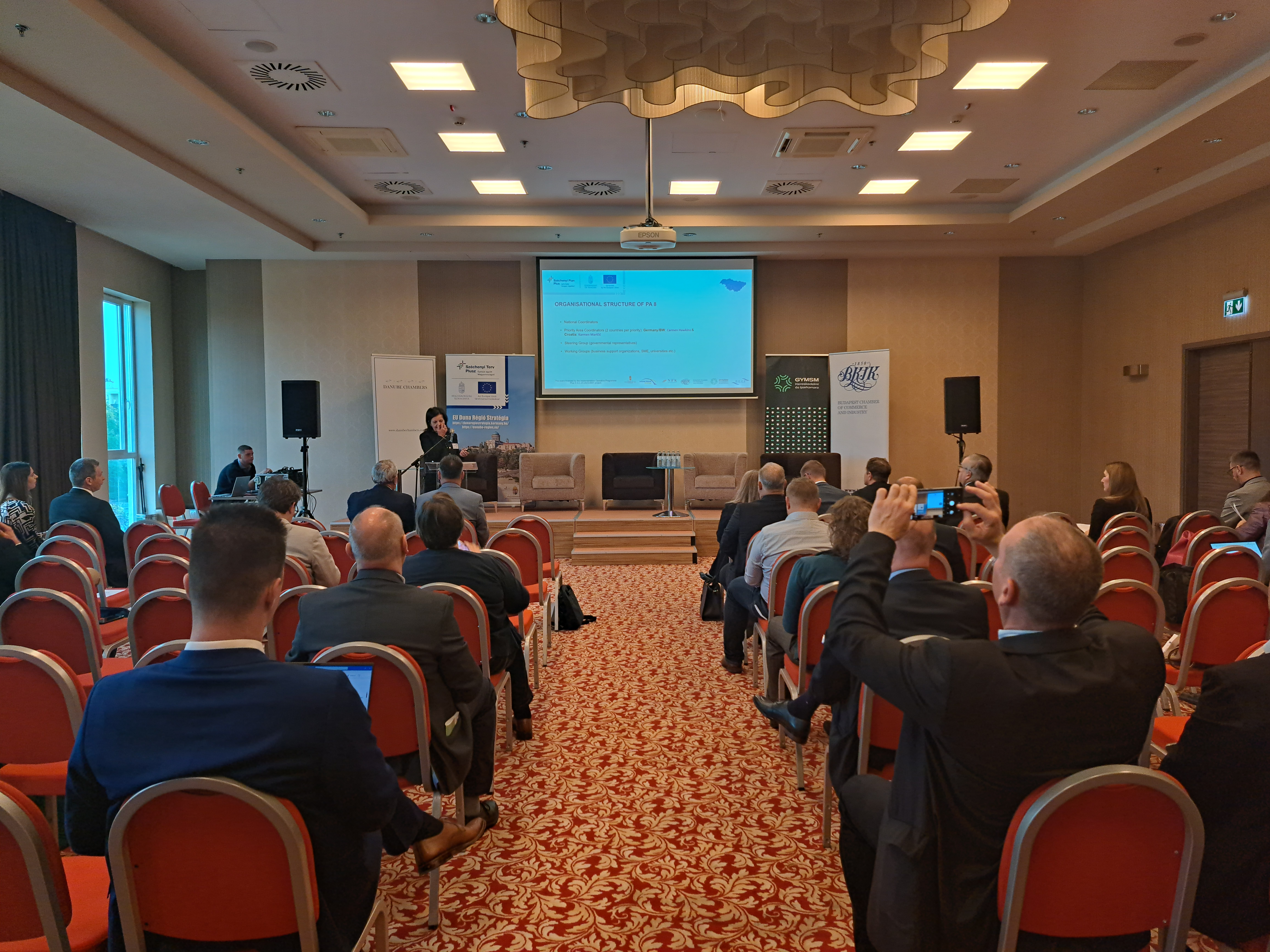A stumble or a journey towards renewable energy? An interview
The SMEnergy transnational project, which brings together 8 countries and 18 partner institutions, aims to promote the transition of SMEs to renewable energy through institution-building tools. The workshop between experts, which took place on 24 June 2024, listed domestic obstacles and opportunities related to the realization of this goal.
Krisztina Olasz (KO) from Energiaklub: Maybe let's start at the beginning where this story started. Why is it important for small and medium-sized enterprises (SMEs) to switch to renewable energy?
Edina Kálmán (EK) from PC-Trend Ltd.: For the Danube countries participating in the project, there is still a big question mark about what to do with the insecurity of energy supply and the gradual depletion of fossil fuels. SMEs, especially energy-intensive ones, are major economic players in this space, providing the majority of jobs. Among them, a race will start on the parallel tracks of greening and strengthening competitiveness. By reducing their energy dependency and stabilising their energy costs, companies can stabilise their position on the market in the long run.
Krisztina Horváth-Karip (KHK) from PC-Trend Ltd.: If we approach all this from a macro level, then the shift towards renewable energy will help achieve sustainability goals and comply with EU environmental standards. The involvement of SMEs in renewable energy contributes directly to reducing carbon dioxide emissions and supports the fight against climate change. In addition, the green economy offers enormous opportunities for us: investments in renewable energy technologies stimulate innovation and open up new market opportunities for businesses in the region.
KO: How does the expert workshop on June 24 relate to all this?
KHK: The aim of the workshop was to explore the obstacles SMEs face in moving towards renewable energy and what solutions could be applied to overcome them. The main question was how to better support SMEs in this process, especially with regard to European good practices.
EK: The answers to this question should be prism-like. There is no right answer and a right direction here, because an energy-intensive medium-sized company sees the root of its problems elsewhere, and therefore considers a solution different from that of an association specializing in renewable energy sources or a county chamber. The event on June 24th was a private workshop where we paid serious attention to the selection of the actors. They themselves said that there is little meaningful discussion in the profession, rather everyone expresses their own points of view at frontal conferences. However, from the many side-by-side narratives, a complex solution does not emerge. We wanted to understand and compile from several angles what are the institutional, regulatory and economic barriers that currently prevent SMEs from using green energy.
KO: What do you see as Hungary's biggest obstacles to the transition to renewable energy in the SME sector today?
EK: What is not SME-specific, but one of the biggest obstacles is the lack of energy storage and electricity system capacities. In addition, the lack of a regulatory environment and sufficient contact between experts is a problem. Furthermore, many businesses are not aware of their energy use, making the green transition more difficult. Like the joke "30, what is 30?" - if I don't know what quantity and cost it is, how can I be motivated to reduce them?
KHK: Not to mention the uncertainty of funding and low interest from SMEs. As the participants put it: a typical SME in Hungary still sees the costs of the transition as a "tax" and does not see it as an opportunity, while the production company exporting to Denmark is already required to use renewable energy. If you do not switch to renewable energy within two years, you will look for another supplier on the international market.
KO: The ROI can be a big deal here...
EK: Of course, if we don't think in terms of a one-year time frame. We have seen hundreds of SMEs over the last ten years, 90% of whom did not plan more than three months in advance. Now companies expect one-year payback periods from renewable energy investments, whereas 10 years ago it was 15-20 years. But ESG regulations and supply chain pressures will change that, and a realistic return of 3-5 years is likely to be restored.
KHK: SMEs think logically: if they are not energy intensive, i.e. only 3% of their total costs, then they will not deal with the issue. If, on the other hand, we are talking about an energy-intensive industry, e.g. bakeries, mines or glass production, where energy expenditure, which already accounts for a significant proportion in the cost structure, has increased many times over in recent years, then it is worth thinking about the matter.
KO: The workshop made several suggestions on how institutional tools could be made to support SME's energy transition. If only the most important ones had to be highlighted, what would they be?
EK: The message from the 8 national comparative analyses of the SMEnergy project is clear: in countries where there is a well established, stable, widely translated central strategy for this, with transparent and stable legislative frameworks and clear institutions, everything works better. It's like laying the foundation of a house: if it's okay, you can build on it well. However, the development of the strategy also requires accessible and reliable data from SMEs, which is not available in Hungary, for example. We do not have public data on how much energy SMEs consumed in a sector and what the transition potential is.
KHK: I would add that, in addition to the macro-environment, we also need to look at the services available to SMEs. Such things as whether companies can turn to a stable and independent energy professional for support if they are thinking about investing in renewable energy, whether they have access to an investment spreadsheet, good practices from the field, or discounted software measuring their energy consumption on the basis of which they can calculate. Currently, there is no database of qualified green suppliers in Hungary. If a company wants renewable energy, it has no idea who to turn to, how professional or reliable that supplier is.
KO: I'd hold on to the word supported. After all, the key here is the question of "who pays the riddler", right?
KHK: Obviously, and in addition to simple tender systems and mixed funds to finance the energy transition, state involvement is essential. Where one of the main questions for us is where the central budget puts money in. In Germany, if an SME spends more than €10,000 a year on energy, they can contact their local energy agency, which will help them apply, advise them, hold hands. This is a stable, predictable help, which is already a major step in the transition of SMEs to renewable energy.
EK: We also see that aid is much more diversified in other countries. Sector-, consumption- or solution-specific needs are better taken into account. Companies need to be provided with a clear and stable regulatory environment and predictable return criteria. If the needs and problems of SMEs were better reflected in the calls for proposals, we would also be much further ahead in terms of funding.
KO: What's next?
KHK: The institutional practices of the 8 countries are starting to shape what the current system looks like. That is, with what types of instruments and in what ways the transition to renewable energy can be facilitated. We would like to use this at home as well.
EK: We have a number of plans that we would like to launch from September. Creating a renewable energy supplier data base, providing SMEs with company visits to places where part of their energy consumption is already covered from renewable sources, recording and publishing good practices as inspiration. We already have candidates for our initiatives.
KO: Does this mean that if I am an SME manager, can I turn to you for help or, if I have good practice, for publicity?
EK: Yes, of course, in fact, we are very happy to welcome these companies with free advice, info, database, presentation of good practices, etc. You can reach us on the Hungarian SMEnergy website. We also connect applicants to the international circulation if they request it. The central website of the project financed by Danube Interreg and the participating countries can be found here.
News & Events
Read the most recent updates and explore the upcoming events.

